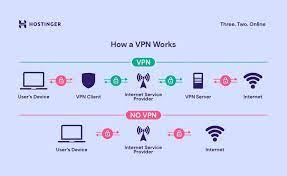What's your home worth? It's something most homeowners wonder about from time to time, particularly if they're thinking of selling or refinancing. For an answer, many are turning to automated online priced estimators in hopes of getting a reliable figure.
But how reliable are they?
If you've tried using one of these - either on a bank website or one of the several other versions floating around the web - you may have noticed that the figures you get for your home can vary widely. In some cases, the automated value provided can be off from the true value of a home by more than 50 percent - making the figure pretty much useless.
So are these estimators any good at all? Or is there a way of telling how accurate an estimator is likely to be?
How they work
First, the way these automated valuation models, as they are often called, work is that they gather a lot of data from public records and crunch it all together to try to produce a good estimate of a home's value. This includes such things as square footage, the number of bedrooms, number of baths, age, additional features such as a patio, finished basement and the like. They also take into account prices from recent home sales in your area, adjust for the size and features of each, and try to spit out a number that will reflect the value of your property.
The downside is that these work well with certain types of properties but not others. They tend to work fairly well for homes in large neighborhoods of similar properties that were all built around the same time and where there is a pretty steady rate of home sales over time.
Problem areas
Automated estimators become increasingly unreliable the more distinctive a property is and when there have been relatively few similar homes sold in that area over the past year. These are often homes in rural areas, small neighborhoods or areas featuring a mix of homes of varying styles, sizes, ages and quality. They are also less reliable in assessing custom-built homes or homes with distinctive features.
Online estimators also have no way of evaluating the condition of a property or how well it's been maintained. They also may fail to take into account improvements that have been done to a property, such as adding an extra room, particularly if that information doesn't show up on the county tax rolls.
Many of these estimators will list the basic data they're basing their estimate on - square footage and the like. So you can check the listing for your property to see if its correct - if not, you need to take that into account when adjusting the figure the estimator provides.
How recent is the data?
Another sign that the valuation provided may be unreliable is if the estimator seems to be relying on old sales data. Many estimators will show you a map of your neighborhood with recently sold properties marked, along with their sales values. However, if you find that many of those sales are older than one year old, and there are few truly recent sales, the data may be out of date. However, if your general neighborhood shows half a dozen or more sales in the past 12 months, the figure is likely to be more reliable.
Another thing to do is to look at the recently sold homes to see what your home is being compared with. If your neighborhood has a mixed character, which of the sold homes are most similar in style and age to your own? Those are likely to be the most reliable guides to what your property is worth.
Can't rely on averaging
You might think that you can simply check your home's value using several estimators and see if several of them seem to cluster around a particular value. While that seems a logical way to proceed, it isn't always reliable. For one thing, different estimators may make similar assumptions or use similar data sets to produce their estimates - so if the assumptions are wrong or the data is bad, they could be wrong in the same way.
The most accurate way to get an estimate of your home value is to have a professional assessment done. However, many homeowners are unwilling to pay for that unless they've decided to go ahead and sell or refinance. Short of that, understanding how online valuation tools work and taking into account their quirks can give you a fairly good ballpark value.





